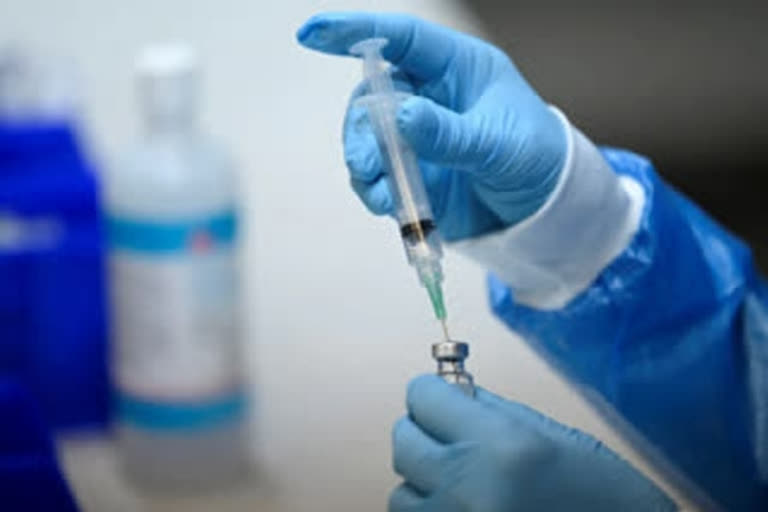Bhubaneswar: The city-based Institute of Life Science (ILS) said about 20 per cent of the fully vaccinated people in Odisha have failed to develop antibodies against SARS-CoV2 and they may require booster doses.
Though Odisha has so far inoculated over 61.32 lakh people with both doses of COVID-19 vaccine, including more than 10 lakh people in Bhubaneswar, about 20 per cent of them have failed to develop antibodies against SARS-CoV2 and they may require booster doses, said ILS director Dr Ajay Parida. "Though the antibody level is 30,000 to 40,000 in some Covid infected people, it is below 50 in a significant number of vaccinated individuals. If the antibody level is 60 to 100, then we can say the person is antibody positive," the ILS director said.
He said the efficacies of Covishield and Covaxin vaccines are only 70 to 80 per cent. He explained that the inability to develop antibodies despite taking double doses of the COVID-19 vaccines could be due to individual difference in genetic order. "The fact is revealed through an antibody genome sequencing study," Dr Parida said.
Apart from children and adolescents in the age group of 0 to 18 years along with these 20 per cent vaccinated adults are vulnerable to COVID-19 infection, he said, adding that they need to be extra careful during the possible third wave of the pandemic.
Read: Young Israelis jabbed as booster expands for over 12
ILS, Bhubaneswar is a part of Indian SARS-CoV-2 Genome Consortium (INSACOG), a network of 28 labs across the country equipped to sequence genomes of the coronavirus for emerging variants. Institute of Life Sciences (ILS) was established in the year 1989 as an autonomous institute under the administrative control of Government of Odisha. In 2002, it was taken over by the Department of Biotechnology, Government of India.
Dr Parida said the Central government is mulling for a third dose, or a booster dose, for people who have not developed antibodies despite getting double doses of the vaccine. The ILS director said that the decision regarding the booster dose will be taken soon by the ICMR and deliberation is on whether the people with little antibodies should take the vaccine of the same or different brand.
Dr Parida also said that no new variant of the virus except Delta Plus has been found in India so far. "We have tested around 600 samples across the country, but didn't find any new mutant of the virus. If we are careful enough, we will manage to avoid the third wave of the pandemic," he said.
PTI



